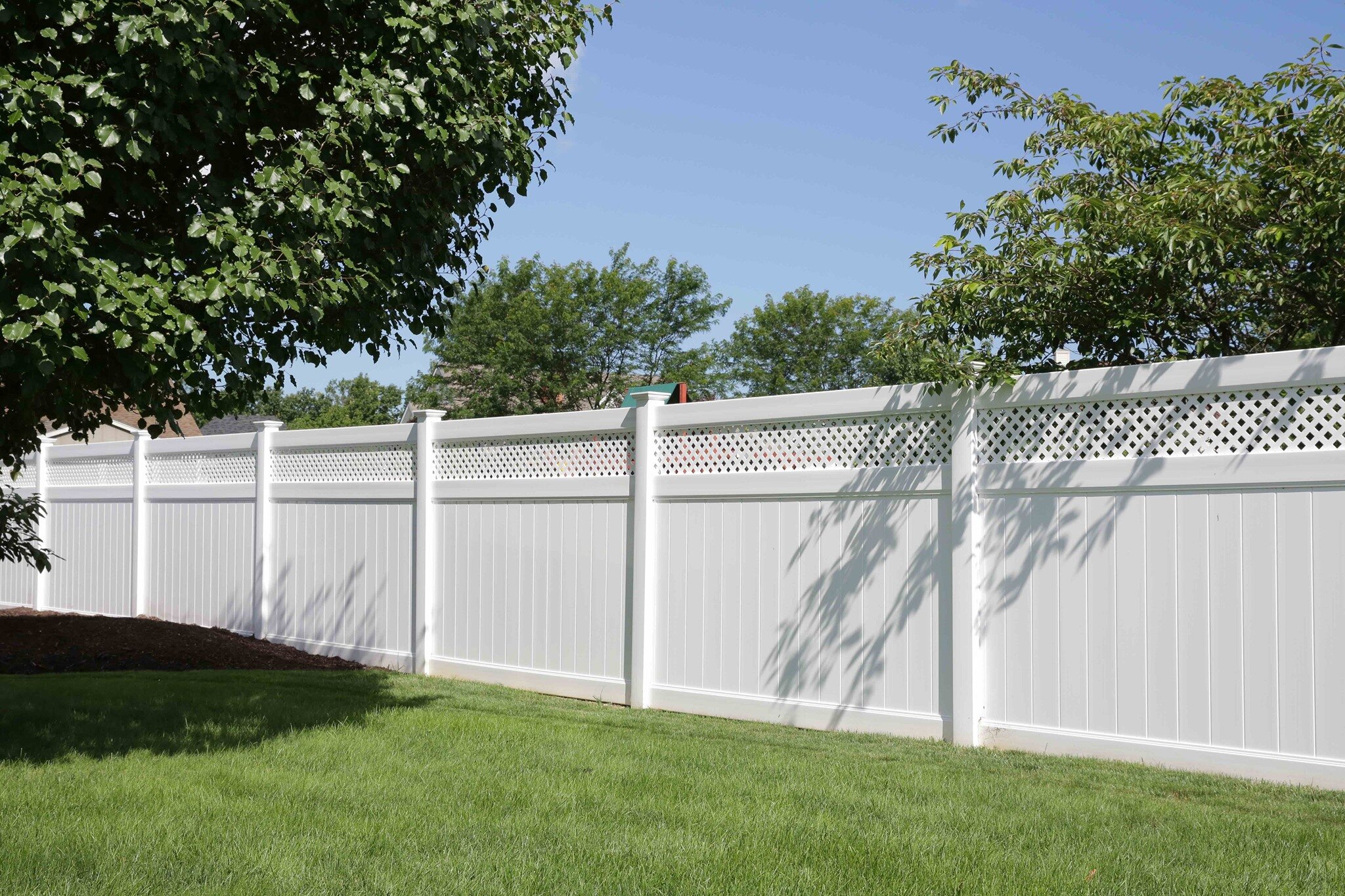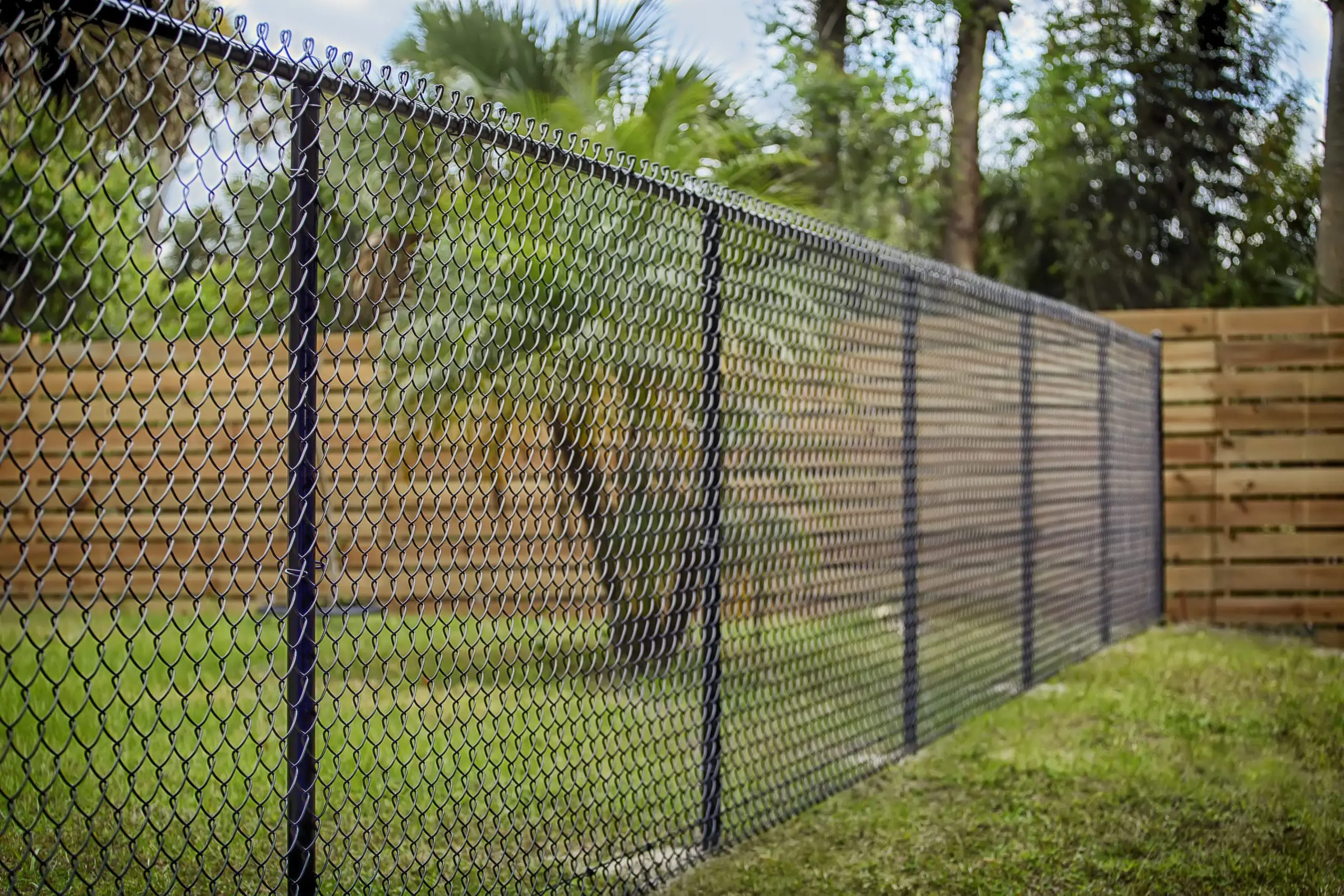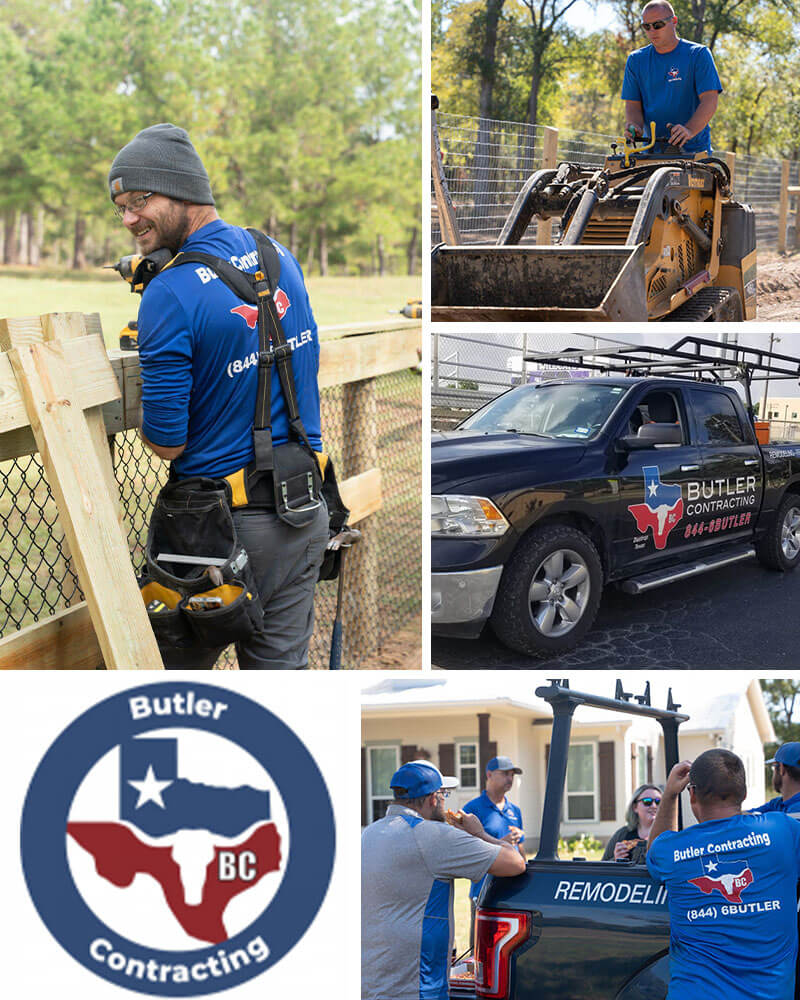How to Find the Perfect Fence Contractor for Your Backyard Project
How to Find the Perfect Fence Contractor for Your Backyard Project
Blog Article
Just How to Recognize Typical Concerns That Require Immediate Fencing Repair Service
It is important to find issues prior to they become larger issues when it comes to preserving your fence. Consistently examining for indications of deteriorating wood, leaning panels, or rust can save you time and money over time. You could not realize exactly how weather and pests can compromise your fencing's honesty. Let's check out the typical signs that suggest your fencing requires prompt focus, so you can keep your property protected and looking its best.
Signs of Rotting Timber in Wooden Fences
Have you seen your wood fence looking a little bit shabby? If so, it could be time to look for indications of decomposing wood. Analyze the base of the blog posts and panels for soft areas. That's a clear indication of rot if you press on the timber and it feels spongy or crumbles. Next, try to find staining or dark spots on the timber-- these commonly signal wetness damages. Take note of any kind of peeling paint or finish, as this can expose the wood to further degeneration. Furthermore, a pungent, stuffy odor can show fungal growth. Do not forget to check joints and links; if they hang or breaking down, the wood under is likely jeopardized. By capturing these indicators early, you can protect against a lot more substantial damages and keep your fence standing strong. Routine maintenance is essential to expanding the life of your wood fence.
Leaning or Tilting Fencing Panels
It's crucial to understand what caused it if you've discovered your fencing panels leaning or turning. This concern could suggest underlying architectural damage that needs your focus. Allow's check out the typical reasons and the repair service alternatives readily available to get your fence back fit.

Root Causes Of Leaning Panels
When you discover your fencing panels leaning or tilting, it's commonly a sign of underlying issues that need dealing with. One typical cause is inadequate drainage; excessive water can deteriorate the dirt around the fencing blog posts, damaging their support. One more culprit can be strong winds or tornados that press against the panels, particularly if they're not properly anchored. Furthermore, the all-natural settling of soil in time can cause messages to move, causing a tilt. Pests, like termites, can compromise the integrity of wood panels, causing them to lean. Bad installment practices may result in panels not being securely set, leaving them at risk to leaning under pressure. Address these issues quickly to preserve your fence's integrity.
Signs of Architectural Damages
Seeing turning or leaning fence panels can be disconcerting, as these concerns usually show architectural damage that requires immediate attention. When your fencing begins to lean, it may signal that the articles are moving or that the soil around them has actually deteriorated. Pay close focus to gaps in between panels or articles, as these can also suggest instability. deck builder. Additionally, look for cracks or splintering in the timber, which can damage the total framework. It might endanger the stability of the fence if you see rust or corrosion on steel components. Bear in mind, disregarding these indicators can result in extra extreme damage down the line, so it's vital to examine the scenario without delay and act prior to it gets worse
Repair Work Options Available

Rust and Deterioration in Metal Fences
If you own a metal fencing, you may observe rust and corrosion creeping in with time, specifically if it's subjected to dampness. These issues not just affect the look of your fencing but can additionally jeopardize its architectural stability. To identify rust, look for reddish-brown places or spots, which indicate the steel is oxidizing. Rust can spread rapidly if left untreated, leading and damaging the fencing to costly repairs.To take on rust and deterioration, you must clean the impacted locations with a cable brush and apply a rust-inhibiting primer. As soon as the primer dries, consider painting the fencing with a weather-resistant paint to safeguard it even more. Routine upkeep, such as examining for indicators of rust and retouching paint as required, will assist expand your fencing's life expectancy. Resolving these problems without delay assures your steel fencing continues to be strong and visually appealing for many years to find.
Splits and Splits in Vinyl Fence

Root Causes Of Plastic Damage
Plastic fence is popular for its durability, yet it can still endure from splits and divides because of various factors. One significant cause is extreme temperature level fluctuations. It can damage the product over time when plastic broadens in the heat and agreements in the cool. In addition, exposure to harsh sunshine can result in UV destruction, making the vinyl weak. Physical impacts, like accidental collisions or heavy branches, can additionally create fractures. Poor installment or making use of low-quality products can exacerbate these problems. Additionally, age plays a duty; older vinyl fence is a lot more vulnerable to damages. Routine evaluations can aid you identify these elements before they lead to substantial issues. Take aggressive measures to assure your fence stays solid and undamaged.
Fixing Cracks Properly
Although fractures and divides in your plastic secure fencing can be concerning, addressing them immediately can protect against further damage and preserve the fencing's look. First, evaluate the size of the crack. For small cracks, a vinyl repair work set commonly consists of glue that can bond the sides, offering a seamless solution. Clean the area thoroughly prior to using the sticky, ensuring it adheres appropriately. For larger splits, you could need to make use of a plastic patch. Cut the patch to size, use adhesive around the sides, and press it firmly onto the split. Enable it to cure as per the supplier's guidelines. Normal maintenance and quick repairs can expand your fencing's life expectancy, keeping it looking fantastic for years to come.
Loosened or Missing Fencing Messages
Loose or absent fence articles can undermine the security of your entire fencing framework. If you observe any articles wobbling or leaning, it's necessary to address the concern instantly. Check for any type of indications of movement, as this can cause further damage gradually. You can quickly assess the trouble by giving each post a mild shake-- if it really feels unstable, it's time to take action.For missing posts, you'll need to replace them asap to maintain your fence's honesty. When you mount brand-new messages, see to it they're firmly anchored in the ground with concrete or crushed rock for included security. If a blog post hangs, tighten it by adding extra support or driving it deeper into the ground.Ignoring these problems can bring about bigger troubles, like spaces in your fence or perhaps total collapse. Maintain an eye on your articles and stay proactive regarding fixings!
Damages From Climate and Natural Environment
Climate and natural elements can damage your fencing, bring about numerous forms of damages that require punctual interest. Hefty rain can create wood to rot, making it unstable and weak. Snow build-up might bend or break panels, while solid winds can uproot fencing articles or trigger sections to lean.If you see fractures or splintering in wooden fencings, it's an indicator of drying because of intense sunlight direct exposure. At the same time, steel fencings can rust if safety coatings wear away, especially in coastal or damp areas.Inspect your fence frequently after storms or severe weather condition to catch any damages early. Dealing with these issues quickly can save you from costly repair work down the line. Don't wait until a little trouble turns into a major one; stay aggressive and keep your surround top form to maintain both performance and curb allure.
Insect Problem and Termite Damages
It's essential to act promptly next page to stop more destruction when you discover signs of insect invasion or termite damages. Seek mud tubes along your fence or hollow-sounding wood, as these suggest termites go to job. You might likewise see little openings or frass, which is termite droppings appearing like sawdust. If you identify any one of these indications, it's time to evaluate the damage.Don' t wait up until it's far too late; parasites can endanger your fence's integrity. Inspect the surrounding area for ants or beetles, as they might be adding to the issue. If you presume an infestation, think about contacting an insect control expert to treat the issue.repairing and confirm or changing afflicted areas of your fencing quickly not just recovers its stamina but also protects against parasites from spreading out additionally. Remain alert to keep your property protected and pest-free.
Frequently Asked Inquiries
Exactly how Typically Should I Inspect My Fence for Damages?
You must examine your fencing at least two times a year, preferably during springtime and loss. Normal checks assist you spot damages early, conserving you money and time on repair work while maintaining your home's look and protection.
Can I Repair a Fencing Myself or Employ a Professional?
If you have the right devices and skills, you can certainly fix a fence on your own. Nevertheless, working with a professional assurances quality work and conserves you time, particularly for complex repair services or comprehensive damage.
What Devices Are Required for Basic Fence Repair Work?
For standard fencing repairs, you'll need devices like a hammer, screwdriver, pliers, a saw, a degree, and determining tape. deck builder. Relying on the repair service, you could also require nails, screws, or replacement boards
Just How Much Does Fencing Fixing Usually Expense?
Fencing repair costs differ widely, yet you can expect to pay between $200 and $1,500 depending on materials, labor, and degree of damages. It's clever to obtain numerous quotes for the very best bargain.
When Is the most effective Time of Year for Fencing Fixes?
The ideal time for fencing repairs is throughout moderate climate, typically in springtime or very early loss. You'll avoid extreme temperatures, making it easier to work and making sure the products set properly for lasting longevity (deck builder). Noticing turning or leaning fence panels can be alarming, as these concerns usually show structural damage that needs immediate focus. Absent or loosened fencing messages can undermine the stability of your entire fencing structure. Snow buildup may flex or damage panels, while strong winds can uproot fencing messages or cause areas to lean.If you observe fractures or splintering in wood fences, it's a sign of drying out due to extreme sunlight exposure. Steel fences can rust if protective finishings wear off, particularly in humid or coastal areas.Inspect your fencing frequently after tornados or severe weather to catch any kind of damages early. Fence fixing costs differ commonly, but you can click this expect to pay between $200 and $1,500 depending on additional hints products, labor, and extent of damages
Report this page